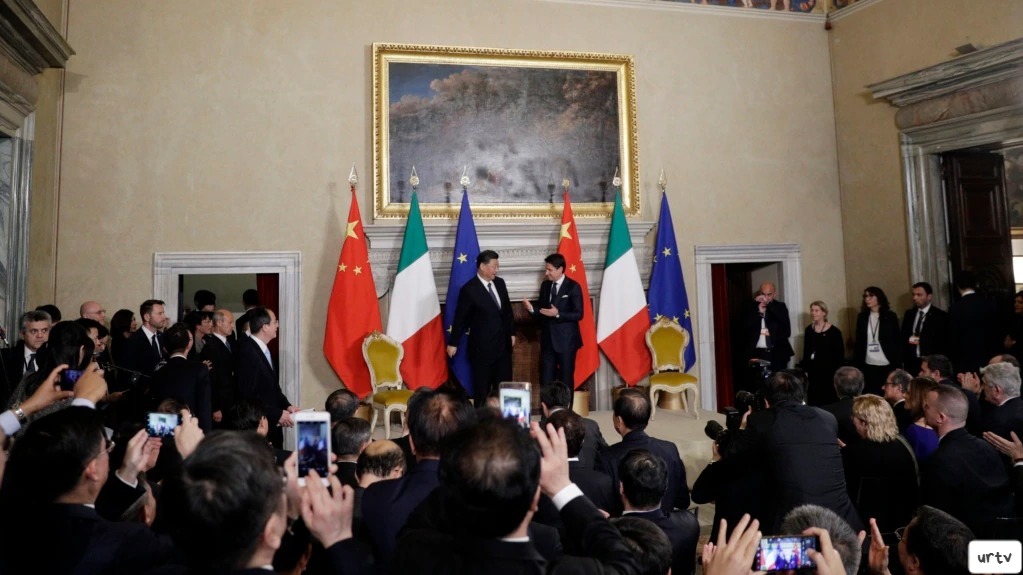Italy officially told China that it will leave the Belt and Road Initiative, or BRI, the first country to do so since the project was launched a decade ago. Despite the decision, Rome still plans to maintain good relations with Beijing, government sources said on Wednesday.

Beijing launched the BRI, a global infrastructure and transportation plan, in 2013, aiming to boost connectivity between China and nations in Eurasia, Africa, Oceania and Latin America. Critics argue that one key goal, though, is to expand the influence of the Chinese Communist Party. Nearly 150 countries, or about 75% of the global population, have joined.
Italian Prime Minister Giorgia Meloni has long been critical of the partnership, once calling the 2019 decision to join the BRI a “serious mistake.” After Meloni took office last year, she said the economic promise of the deal had never materialized.
The agreement, which is good through March 2024, will not be renewed, sources in her coalition said.
“We have every intention of maintaining excellent relations with China even if we are no longer part of the Belt and Road Initiative,” one official told Reuters news agency on condition of anonymity.
Another source, also speaking on condition of anonymity, said the exit was orchestrated in such a way as to “keep channels of political dialogue open,” but wouldn’t elaborate.
The Italian newspaper Corriere della Sera, which broke the news, reported that Rome’s intention to leave the BRI was communicated to Beijing earlier in the week.
Some experts think the timing of the notification could have been intentional. China is set to host a summit with European Union officials on Thursday. The talks will span a number of intricate issues, including trade deficits and technology.
“Perhaps there was an agreement with the EU leaders that Italy would notify China before the EU meeting so that this [withdrawal] wouldn’t lead to any misunderstandings,” said Francesco Sisci, a Beijing-based columnist for SettimanaNews, an Italian news outlet.
When Italy became a BRI member nation four years ago, then-Prime Minister Giuseppe Conte had high hopes for booming trade. But China has since raked in most of the profits.
Annual Chinese exports to Italy nearly doubled from $34 billion in 2019 to $62 billion today. During that same period, Italian exports to China rose modestly from $14 billion to $17.7 billion.
Italy, which will host a meeting of the Group of Seven leading industrialized nations, or G7, in 2024 and serve as rotating president next year, is the only major Western power to have signed onto the pact. This came, despite the United States’ caution that China might gain undue control over technology and infrastructure.
“Italy joining the BRI in 2019 sent the wrong message to other EU and NATO members,” Sisci told VOA. Meloni’s government, he said, is now signaling that “it is back in line with its partners and allies.”
Meloni, a standard-bearer for right-wing populism in Europe, has been eager to show the world that Italy stands with NATO. In June, her Cabinet limited the power Chinese shareholder Sinochem had over the Italian tire company Pirelli. According to a government source, she promised U.S. President Joe Biden earlier this year that Italy would back out of the BRI.
Foreign Minister Antonio Tajani flew to Beijing in September on a diplomatic mission, and President Sergio Mattarella is expected to visit China in 2024. Meloni has said she also wants to visit Beijing.
Some information for this report came from Reuters.
NewLatter Application For Free







